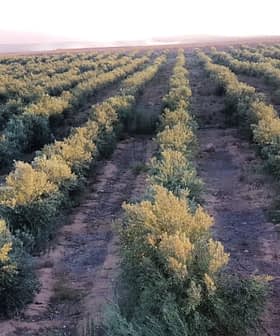
Olive oil producers and olive growers in Lebanon are receiving unexpected support in the market due to poorer imports from war-torn Syria. An increase of nearly 20 percent in the local market prices of olive oil has helped Lebanese olive farmers and olive oil producers sustain their businesses despite increases in production costs.
Syria’s continuing civil war conditions have made it more difficult and expensive to ship olive oil across the border. At the same time, Lebanon has managed to produce quality olive oil this year. The combined effect has been a boost for the local olive oil industry, despite ongoing challenges of the dumping of low-grade olive oil.
Lebanon’s Minister for Agriculture, Hussein Hajj Hasan, has announced that the government will be purchasing 100,000 20-liter olive oil canisters. Hajj Hasan is also looking at the possibility of reviving olive oil cooperatives and certifying Lebanese olive oil as organic, which will provide a boost to the sector.
One of the key challenges that the local olive oil sector in Lebanon still faces is the lack of standards enforced by the government, which leaves the market vulnerable to the onslaught of substandard, or forged, olive oils. The marketing and distribution network for olive oil is weak, which prevents the farmers from selling their produce at the right prices.
Some enterprising Lebanese olive oil companies such as OliveTrade are trying to perform against all odds by focusing on exports to high-end markets. OliveTrade’s high-quality olive oil brand “Zejd” has found acceptance in quality conscious markets such as France, U.K., Kuwait, Canada and Japan. Lebanon produces just under 100,000 tons of olive oil annually.




